

Tao Te Ching

Anarchist Lineage
Common connotations surrounding the idea of Anarchism often sink to images of chaos, lawless license, and out-of-control irresponsibility. At root, however, it mainly advocates non-hierarchical institutions, anti-authoritarianism, and self-governing societies. An anarchistic philosophy applied to itself naturally precludes a common doctrine or definition; but instead, a wide diversity of approach with many different traditions. In general though, like authoritarians states tend to have a foundation in a belief in the “basic badness” of human beings that needs to be controlled; anarchistic traditions often begin with a view of “basic goodness”—an understanding that, at heart, humans have integrity and an inherent wisdom and compassion, that if left alone, they will make positive and appropriate choices.
Most religions began along very anarchistic lines and were only later perverted into hierarchical power structures. Jesus was basically an anarchistic leader who opposed the oppressive Mosaic law and advocated a personal connection with Truth and Sacred World. In the Taoist tradition, Lao Tzu and Zhuang Tzu taught that the less government, the better. The Buddha represents an anarchistic way of life and accomplishment based on an inherent and intrinsic enlightenment that arises from an experiential awareness, hindered by rigid dogma and external control. Many consider Sufism as an anarchistic version of Islam and anarchistic trends dominate the Jewish Hasidic and Kabbalistic traditions as exemplified by Erich Fromm, Martin Buber, and the modern Jewish Renewal movement. Anarchistic attitudes form the foundations for Gnosticism, Quakerism, Dysnomianism, Neopaganism, and the Philip K. Dick inspired Anarcho-Gnosticism,
Politically, anarchism considers government as basically harmful and unnecessary while advocating for stateless societies. Rousseau and the romantic movement brought this view into modern times, Bakunin becoming an extreme example called by Bertrand Russell (an anarchist himself) an “extreme subjectivism and form of madness.” From the other perspective, John Lennon’s song, Imagine became a positive anthem of anarchy. During the 20th century, anarchists became a major influence fighting against its polar opposite, fascism.
People (31)

Lao Tzu 老子 (Lǎozǐ)
604 BCE -
The poems translated here say more about Lao Tzu than could any commentary on his life. A huge influence on all of Chinese culture, much of Chinese literature and almost all of Chinese art, Lao Tzu’s teachings also extend to every aspect of life including politics to such an extent that he was claimed as an ancestor by the emperors of the Tang dynasty. Some call Zen “Taoism in Buddhist clothing” and these teachings continue to inspire people in all of the non-thought lineages. As Ursula Le Guin comments, “Of all the deep springs, this is the purest water.”

Buddha गौतम बुद्ध (Siddhartha Shakyamuni Gautama)
563 – 483 BCE
Awakened Truth
While living at about the same time as Lao Tzu, the Buddha was more of a traditional teacher. His teachings, often called Buddha Dharma (“Awakened Truth”) extend and adapt to people in all walks of life: monks, householders, wandering yogis, kings and secular leaders of all kinds. Born into luxury and privilege, Siddhartha realized the meaninglessness of pleasure-seeking, fame, fortune, power and set off on a spiritual quest leading him to the deepest realization and insight. He cautioned against belief systems, herd instinct, and uncritically following leaders, philosophies, and religions.
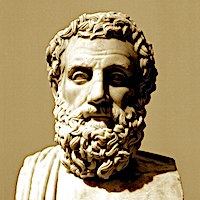
Aeschylus Αἰσχύλος
525 – 455 BCE
The Father of Tragedy
Although Aeschylus was the first to present plays as trilogies, the initiator of many theatrical innovations, and the “father of tragedy;” his Greek epitaph didn’t mention his plays, only his military roles. Although not fully acknowledged in ancient Greece, his influence has seeped through history and into the present as an inspiration for Wagner, Milton, the Romantics, Eugene O’Neill, and Robert F. Kennedy who claimed him as his favorite poet who he quoted in a speech to African Americans after Martin Luther King’s assassination. This same quote—“to tame the savageness of man and make gentle the life of this world”— became inscribed on Kennedy’s memorial after his own assassination. Aeschylus’ costumes and performances were so vivid that they were said to cause children to faint, men to urinate in their robes, and pregnant women to go into labo
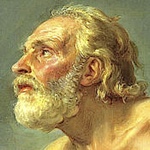
Diogenes (of Sinope)
412 – 323 BCE
Exiled from his place of birth, Diogenes lived as a citizen of the world begging for food and sleeping in a big ceramic jar. Carrying a lamp during the day “looking for an honest man,” he publicly ridiculed Alexander the Great, sabotaged and embarrassed Plato, and was sold into slavery after being captured by pirates. He developed Cynicism and teachings that became Stoicism, one of the most influential philosophies of Greek culture. He criticized the artificialities of society and advocated simplicity and a return to nature. Referencing him in their works, he inspired many great literary figures including Chekhov, Blake, Goethe, Dostoevsky, Cervantes, Charlotte Brontë and Charles Dickens. Called by Plato ”Socrates gone mad,” his poetic spirit and lifestyle continued through the ages, manifested in modern times by people like Charles Bukowski, and embodied in stories like Jack Kerouac’s On the Road.
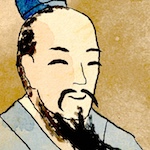
Chuang Tzu 莊周 (Zhuangzi)
369 – 286 BCE
In a very real way, all of Chuang Tzu’s writings are a commentary on the Tao Te Ching. And by far, the best. Many consider him to be like Plato was to Socrates, like Paul was to Jesus, like Mencius was to Confucius, like Ashoka was to the Buddha… responsible for spreading the message of their teacher to the bigger world. Ridiculing rigid Confucian principles, he champions the sense instead of the words, the non-thought lineage, and true wisdom in daily life. His teachings emphasizing the interdependence of all things both inspire and foreshadow our modern ecological perspective.
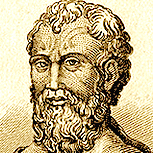
Zeno Ζήνων ὁ Κιτιεύς (of Citium)
334 – 262 BCE
Self-made wealthy merchant, shipwrecked and impoverished Phoenician, founder of Stoicism - a kind of reformation of Epicureanism that had corrupted from the pursuit of happiness to the pursuit of pleasure; Zeno emphasized virtue and goodness as essential to true happiness and peace of mind. An internationalist wanting to break down all national and racial barriers with no nations, classes, rich or poor, he defined vice as the rejection of reason making happiness impossible. Crediting Socrates, he defined the universe as god and acting on hope and fear, seeking pleasure or avoiding pain as the negative impulses causing suffering. His Stoic philosophy remained dominant for c. 800 years, influenced Seneca, Epictetus, and Marcus Aurelius. A major crater on the moon is named after him.

Jesus
3 BCE – 30 CE
Descriptions of Jesus were written in New Testament documents between 70 and 150 CE, a time of many different Christian books, many different gospels. In 170 CE church leaders first decided which books were “official,” which weren’t. More were added later and the modern version finalized at The Council of Hippo in 393. Some historians believe this selection was at least partially based on politics, patriarchy, and power. In any case, many of the banned and burned books known as Gnostic Gospels seem to have more wisdom and understanding, more connection to the non-thought lineage than the officially recognized texts. Many of the quotes here come from one of these, The Gospel of Thomas discovered in 1945.
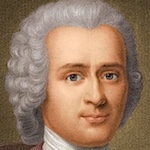
Jean-Jacques Rousseau
1712 – 1778 CE
Motherless from almost birth, abandoned by his father, poor in health and income; Rousseau wandered on his own for 12 years challenging the status quo and rejected by society as a dangerous rebel or insane criminal. Stoned by neighbors when he went for walks, harassed by police, and expelled from countries; he went on to become “the finest thinker of his time,” a main source for Jefferson and the Declaration of Independence, a cause of the French Aid for the American Revolution, and a seminal influence on Tolstoy, Wordsworth, Thoreau, Byron, Shelly, Keats, Schopenhauer, Kant, Goethe, and Marx. He transformed education, inspired the French Revolution and the Romantic Movement, wrote political and social books that became cornerstones of modern thought.
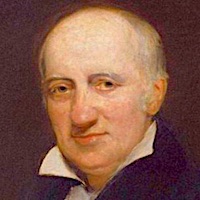
William Godwin
1756 – 1836 CE
Provocative and influential social, political, and literary critic
Mary Shelley’s father, married to pioneering feminist Mary Wollstonecraft, journalist, philosopher, publisher, translator, and author; Godwin became the first to promote utilitarianism and modern anarchism. He attacked aristocratic privilege, advocated the abolition of marriage, wrote numerous novels, and became a major influence on British literature and culture. His views on progress, life extension, and human perfectibility gave inspiration for his daughter’s novel, Frankenstein. He opposed Malthus, became a literary influence on Dickens and Poe, a political influence on Peter Kropotkin, libertarianism, and communism.
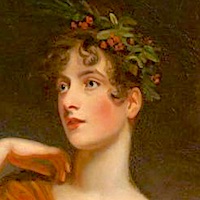
Mary Wollstonecraft
1759 – 1797 CE
Seminal feminist
Founding feminist philosopher, wife of anarchist forefather William Godwin, and mother of famous writer Mary Shelley; Wollstonecraft was one of the first in the West to advocate for women’t equality and rights. She wrote and spoke against the prevailing view that women are inferior to men and argued that women only appear inferior because of a lack of education and opportunity. Although stridently criticized by her contemporary writers and for 100 years by most believing ‘no self-respecting woman would read her work,’ she was a foundational influence on Jane Austen and scholars have traced her ideas in Pride and Prejudice, Sense and Sensibility, and as a character in Persuasion. Her influence expanded with rise of feminism in the 1960s and 1970s and continues today.
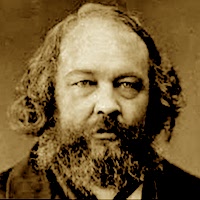
Mikhail Bakunin
1814 – 1876 CE
Romantic rebel, revolutionary anarchist, founding father of modern socialism
Revolutionary anarchist, famous ideologue, and founder of collective anarchism; Bakunin promoted anti-authoritarian Socialism which put him at bitter odds with Marx and his followers who wanted to establish authoritarian people's states. This philosophical disagreement grew into a bitter hatred, a slander campaign by Marx, Bakunin's exile and 12-year imprisonment. When his warnings about Marxist states becoming one-party dictatorships proved prophetic, his influence regained credence and his influence spread into modern times through thinkers like Noam Chomsky, Kropotkin, Herbert Marcuse, Neil Postman, and A.S. Neill becoming—in many ways—more influential than Ma
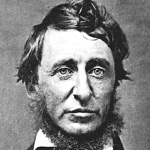
Henry David Thoreau
1817 – 1862 CE
Father of environmentalism and America's first yogi
Dedicated abolitionist, "America's first yogi," champion of nature and the natural, “father of environmentalism;” Thoreau brought a little Lao Tzu into 19th Century America. Instead of following in the pattern of his piers leading a life of “quiet desperation,” Thoreau followed much more in the Tao Te Ching’s style of Wu Wei. His non-violent approach to opposing slavery and the Mexican-American War inspired future leaders like Gandhi and Martin Luther King. Although one of America's most famous writers, during his lifetime his most famous book, Walden didn’t sell enough copies to pay for the paper it was printed on.
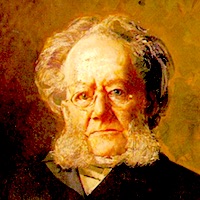
Henrik Ibsen
1828 – 1906 CE
"The world's 2nd most-performed playwright"
One of his time's most influential dramatists, Ibsen became—after Shakespeare—the world's most performed playwright. Considered a founder of theatre modernism and realism, he became on of the most influential playwrights of the 19th century. Examining the dark underside of his contemporary culture, many thought his works scandalous and they were both intensely loved and hated. The hated side forced him into poverty, self-imposed exile, and the wrath of critics. Nominated for the Nobel Prize in Literature 3 times, he became a strong influence on other influential writers like Eugene O'Neill, Oscar Wilde, Arthur Miller, James Joyce, and George Bernard Shaw. One of his plays, the 1879 A Doll’s House, became almost universally popular and was still the world's most performed play in 2006
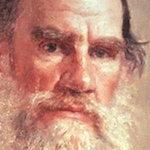
Leo Tolstoy
1828 – 1910 CE
One of the greatest authors of all time, Tolstoy’s dedication to nonviolent resistance had a deep impact on leaders like Mohandas Gandhi and Martin Luther King. His influence on education was opposed and stopped by Tsarist secret police but still became the first example of democratic education. Inspired by the Buddha, Confucius, and Chinese traditions, he was a strong Christian in a style like the early Gnostics and believed in seeing “The Kingdom of God Is Within You” rather than relying on an external church organization or priests. Excommunicated from the Russian Orthodox Church, he revived and inspired an authentic and practical Christian philosophy.

Bertrand Russell
1872 – 1970 CE
“20th century Voltaire”
Bertrand Russell (1872 - 1970)
Nobel laureate for championing “humanitarian ideals and freedom of thought,” famous logician, polymath, historian, writer, and social critic; Russell promoted a world government and a "scientific society.” From one of the UK’s most prominent aristocratic families, he dedicated his life to political and social activism trying to abolish war, poverty, prejudice, and imperialism. A prominent anti-war activist, he went to prison during World War I. In his early 70’s he recreated himself; continued a strong, active and relevant life being arrested and jailed for 7 days because of an anti-nuke protest when he was 89; and persevered using his considerable political influence up until days before he died at 97. A major influence on the development of computer science and artificial intelligence, he worked for nuclear disarmament, gay rights, and world peace.

Hermann Hesse
1877 – 1962 CE
Guiding light for a world-wide cultural transition, spiritual teacher to the Beat generation, poet at heart and in life, soul of his age; Hesse was expelled from a Protestant seminary, denounced by the German media when he protested German’s involvement during WWI, and his books were banned and destroyed by Hitler. The 20th century’s most widely read European author, his books personify the balance between freedom and equality, the individual and society and the integration of opposites extolled by the non-thought lineages. After writing Nobel Prize-winning book, The Glass Bead Game, he devoted his life to mentoring young people and collaborating with peers like Thomas Mann and Carl Jung. He wrote over 30,000 letters to hundreds of different correspondents
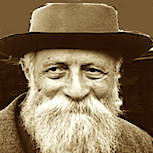
Martin Buber מרטין בובר
1878 – 1965 CE
Influential philosopher, educator, and political activist; Buber challenged materialistic thinking and promoted a deep interpersonal respect and appreciation. Like most of the people in these biographies, he warned against belief systems and advocated a conceptless-mind and open-hearted experience of the world. He inspired Jewish cultural renewal, developed an educational model based on the whole person, and supported a bi-national Israeli-Palestinian state. Related to 16th century rabbi Meir Katzenellenbogen, Helena Rubinstein and Karl Marx; he challenged Hegel, Kant, Kierkegaard and Nietzsche. Not considering Jewish culture or religion necessary, he was criticized by Jewish scholars for this as well as emphasizing direct experience above Jewish law.
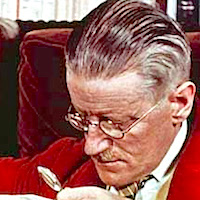
James Joyce
1882 – 1941 CE
James Joyce (1882 – 1941)
Polyphonic novelist, poet, one of the most influential 20th century writers, stream of consciousness avant-garde modernist; Joyce revolutionized modern fiction while - according to a psychoanalyst - using his writing to avoid a complete psychotic break. A huge influence on philosophers and writers as varied as Borges, Rushdie, Beckett, Robert Anton Wilson, Joseph Campbell, and John Updike; his influenced crossed over into the world of science as he became the source of the now popular scientific term, “quark..” Finnegans Wake - considered the most challenging work ever written in the English language - shines as a monument to the possibilities of creative spirit unshackled by regard for public opinion. Although considered one of the greatest novels ever written., controversy and resistance kept his novel Ulysses from being published in the USA until 12 years after it was written. His writing style and content brings out the deeper reality of situations and experiences pointing toward the sense rather than the words.
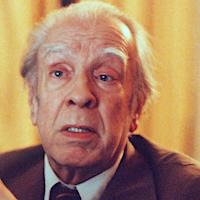
Jorge Luis Borges
1899 – 1986 CE
Literary Explorer of Labyrinthian Dreams, Mirrors, and Mythologies
Argentinian, pioneering poet, translator, librarian, lecturer, and short-story writer; Borges helped begin the magical realism style of literature. A world traveler and completely blind by the time he was 55 years old, his lack of external sight contributed to his vast and colorful worlds of imagination. He wrote many and popularized the style of writing commentaries on imaginary books and biographies of imaginary authors. A harsh critic of Juan Perón and his wife, Evita, he described in detail their private lives of corruption as well as their effective propaganda, "tales and fables made for consumption by dolts." After he died, Peronist leaders wouldn't even accept him as an Argentine.
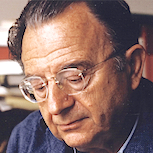
Erich Fromm
1900 – 1980 CE
One of the most powerful voices of his era promoting the true personal freedom beyond social, political, religious, and national belief systems
One of the world’s leading psychoanalyst-philosophers, “forefather of socialist humanism,” civil rights activist, and anti-Vietnam protestor; Fromm was born Jewish, became a rabbi but then came to believe that religion only breeds hatred, inequality, and discord. Becoming another “apostle of doubt,” he criticized political ideologies, cultural convictions, and all authoritarian value systems. Escaping Hitler and the Nazis in Germany, he came to the US where his talks and writings initiated the beginning of political psychology and explored the modern influences toward fascism, irrational behavior, consumerism and the “escape from freedom.” As most of our wisdom holders, he focused on unifying opposites, in particular as in his last book, paradox between “having” and “being.”
Interview with Mike Wallace
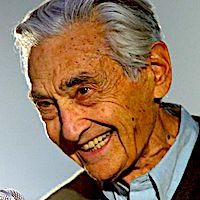
Howard Zinn
1922 – 2010 CE
Historian of the oppressed and defeated
Educational innovator, historian, author of 20+ books, and democratic socialist; Zinn grew up in a family of factory workers who couldn’t afford to buy books or magazines. In a dramatic and life-molding event, when young and participating in a peaceful political rally, he was knocked unconscious by mounted policing charging on the protestors. During the Vietnam War, he supported Vietnam Veterans against the War, the Civil Rights and Labor Movements. He backed the Native American, Black, and Women’s equality efforts, opposed the 2003 invasion of Iraq, and the extensive military bombing of civilian targets. Realizing the omni-influence of the phrase, “History is written by the victors,” he worked hard to popularize the stories of the morally superior but physically defeated historical groups. The success of these efforts could be measured by the identities and allegiances of his major critics: Republican Indiana Governor Mitch Daniels tried to keep his book out of state schools, because of his support for Martin Luther King, the FBI added him to their Security Index and label him a high security risk, and—even as recently as 2017—an Arkansas legislator tried to ban his books from public schools.

Reb Zalman
1924 – 2014 CE
Major founder and proponent of the Jewish Renewal movement and writer of the first English book on Jewish meditation; Rabbi Zalman when young was interned in Vichy French detention camps and escaped the Nazi advance in Europe by coming to America. In 1962 after experimenting with LSD, he left his more conservative tradition and became a voice in the counter-culture movement championing feminism, the Gaia hypothesis, and a kind of mystical pantheism. Recognized as a sheikh (wise elder) by a Sufi order, given an honorary doctorate by a Unitarian school of ministry, and World Wisdom Chair at the Buddhist Naropa University; he was an important voice in deep ecumenical dialogues

Allen Ginsberg
1926 – 1997 CE
Eloquent instigator, figurehead and voice for the Beat Generation of the ’50s, the counterculture of the 60’s and the flowering of Buddhism in America during the 70’s and 80’s; Ginsberg symbolized a powerful influence against materialism, the military-industrial complex, and conformity. His poem "Howl” written during a time when homosexuality was a crime in every U.S. state was confiscated by police, seized by US Customs, and started a famous obscenity trial that led to more legal and cultural acceptance for the LGBT community. For decades, a powerful advocate for free speech, gay rights, and non-conformity; a tireless opponent and protestor against the Viet Nam War, the War on Drugs, imperialism, the failure to protect refugees, and persecution of minorities; at the request of his Tibetan teacher Chögyam Trungpa and along with Anne Waldman started The Jack Kerouac School of Disembodied Poetics.
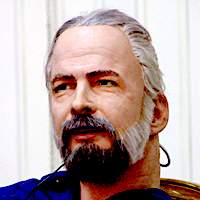
Philip K. Dick
1928 – 1982 CE
Legendary consciousness provocateur
The most influential science fiction writer of all time, garage philosopher/theologian, autodidact, the "Shakespeare of Science Fiction,” in his own words “a flipped-out freak,” and legendary consciousness provocateur; Dick was a serious student of the pre-Socratic philosophers, Plato, Meister Eckhart, Spinoza, Hegel, and Schopenhauer. He wrote 44+ novels, 120+ short stories and inspired most of the best sf films including Blade Runner, Total Recall, Minority Report, The Matrix, Being John Malkovich, Adaptation, Eternal Sunshine of the Spotless Mind, The Truman Show, Gattaca, 12 Monkeys, Fight Club, Vanilla Sky, Pi, Inception, and countless more. Devoted to his writing, during the 1950’s he said "We couldn't even pay the late fees on a library book" and during the 1960’s—because of an anti-Vietnam war pledge—the IRS confiscated his car. Always loved in the science fiction world but with a ”C” in Written Composition and ignored by mainstream literature; 25 years after his death, he became the first science fiction writer to be included in The Library of America series and his book Ubik was listed as one of the 100 greatest English language novels.

Noam Chomsky
1928 CE –
A Jew now banned from Israel but awarded World Peace awards for the promotion of human rights; vilified by corporate interests and the mainstream press but given honorary degrees from over 50 colleges and universities; arrested multiple times for his political activism but one of the single most cited scholars in academic circles; on Nixon's Enemies List and illegally watched by the CIA for many years but considered by progressives “a figure of enlightenment and inspiration;” called by the far right “a hard-boiled anti-American monomaniac” but a foundational pioneer in the fields of cognitive science, linguistic theory, computer science, and evolutionary psychology; Chomsky may be the most important intellectuals alive today.
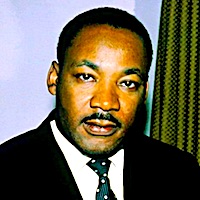
Martin Luther King Jr.
1929 – 1968 CE
Leading world influence for equality, peace, non-violence, and poverty alleviation
(1929–1968)
Baptist minister, one the the 20th century’s most admired people, “the conscience of his generation,” most famous civil rights leader, and known for one of history’s most influential speeches; Martin Luther King became one of the world’s most effective forces for equality, peace, and poverty alleviation. An enemy of J. Edgar Hoover, investigated by the FBI, and assassinated; his life proved the power and unstoppability of a good and pure heart. Practicing Gandhian nonviolence and Thoreauvian civil disobedience, he won the Nobel Peace Prize, the Presidential Medal of Freedom, the Congressional Gold Medal, 50 honorary university degrees; and today, a national holiday and hundreds of US streets are named in his honor.
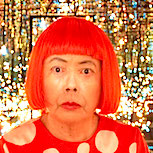
Yayoi Kusama 草間 彌生
1929 CE –
Yayoi Kusama 草間 彌生 (1929 - )
One of the Top 10 Living Artists, 2014’s most popular artist of the year, precursor and inspiration to Andy Warhol and the pop art movement, film writer/start, published novelist and poet named the most popular living artist; almost 90-year-old Yayoi Kusama set a record for a female artist when one of her works sold at Christie’s in New York for $5.1 million. During the counterculture’s 1960s, she organized a series of events that included naked, brightly painted withpolka dots participants. One of the world’s most important voices for the avant-garde, she has lived in a Japanese mental institution since 1973 creating hallucination-inspired “infinity nets” while organizing some of the world’s most popular art exhibitions. After creating art every day for over 70 years, she says she’s feeling “as creative as ever,” that “my mind is full of paintings,” and “I, Kusama, am the modern Alice in Wonderland.”
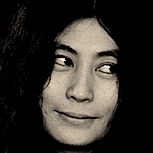
Yoko Ono 小野 洋子 (“Ocean Child”)
1933 CE –
The daughter of one of Japan’s richest banking clans in a long lineage of samurai warrior scholars; Yoko One fell from attending exclusive schools in New York and Japan to begging for food with all the family possessions in a wheelbarrow. A true, faithful life-artist, she collaborated with John Lennon’s public protests against the Viet Nam war, co-wrote ”Give Peace a Chance” inspired many famous songs, and was the only woman to sing a lead vocal on a Beatles’ recording. Continuing her life as “the world's most famous unknown artist,” she’s extended John Lennon’s legacy of political and social activism, philanthropy, and influence on world culture.
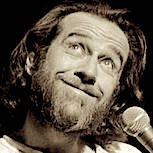
George Carlin
1937 – 2008 CE
One of the most influential social commentators of his time
“Dean of counterculture comedians,” host of the first Saturday Night Live in 1975, and one of the most influential social commentators of his time; Carlin, with skill and insight, fearlessly challenged the status quo and ceaselessly poked fun at America’s most revered sacred cows. Arrested and at the center of a 1978 U.S. Supreme Court case, he transcended comedy and became a social psychology and political influence. Admired and an inspiration for Larry King, Jon Stewart, Bill Maher, Lily Tomlin, Jerry Seinfeld, Garry Trudeau, and many more; he skillfully brought the courage and iconoclastic willingness common with most of our lineage holders into 20th century world culture.

John Lennon
1940 – 1980 CE
Poet of our age, 20th Century social conscience, inscrutable, uncompromising, brave and outrageous; John Lennon personifies the Lao Tzu lineage and left a lasting and profound impact on the international evolution of consciousness. Uncompromising psychological prophet, he distilled and magnified both our dark side shadows and bright, golden age potentials. Reviled by the Nixon administration and investigated by the FBI, he’s now number 8 on the list of 100 Greatest Britons. Anthem writer for the counterculture and the anti-war movement, reviled by the Nixon administration and investigated by the FBI, he’s now number 8 on the list of 100 Greatest Britons.

Bob Dylan
1941 CE –
Though thought of in many different ways by different people, at heart, Bob Dylan may most essentially represent a modern-day Taoist sage, a continuation of Lao Tzu’s lineage. Awarded the Nobel Prize for Literature in 2016 and called the “Shakespeare of his generation,” he wrote over 500 songs recorded by more than 2000 singers and sold tens of millions of albums. Though world famous for decades and beyond “successful” in numerous ways, his humility and refusal to make a big deal out of himself remains. His music and message transcends his voice and culture. As relevant today as it was in the 60’s, it continues as a major influence on our cultural conscience and consciousness. And this influence shows all signs of continuing far into the future.
Related Sources (0 sources)
Quotes about the Anarchist Lineage (10 quotes)

“In a word, we object to all legislation, all authority, and all influence—privileged, official and legal, even when it has proceeded from universal suffrage—convinced that it must always turn to the profit of a dominating and exploiting minority, against the interests of the immense majority enslaved.”
Comments: Click to comment

“The State is the curse of the individual... Away with the State! I will take part in that revolution. Declare free choice and spiritual kinship to be the only all-important conditions of any union.”
Comments: Click to comment
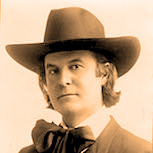
“All good men are Anarchists… all just men are Anarchists. Jesus was an Anarchist.”
Comments: Click to comment

“Every community is faced with two dangers, anarchy and despotism... This led Locke to the doctrine of division of powers, and of checks and balances.”
Comments: Click to comment

“There is an anarchist in all of us that inclines us to sympathize with a felon who is desperately and cleverly eluding the police; nobody loves a policeman until he needs one.”
Comments: Click to comment
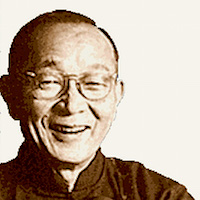
“I would characterize the Confucian political ideal as strictly anarchism, in which moral culture of the people making government unnecessary become the ideal. If it is asked why the people of Chinatown in New York never have any use for the the police, the answer is Confucianism. There never were any police in China for 4000 years.”
Comments: Click to comment

“I believe that in time we will have reached the point where we will deserve to be free of government.”
Comments: Click to comment
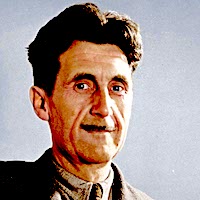
“In a society in which there is no law, and in theory no compulsion, the only arbiter of behavior is public opinion. But public opinion, because of the tremendous urge to conformity in gregarious animals, is less tolerant than any system of law.”
Comments: Click to comment
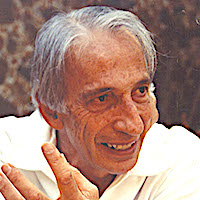
“Jesus was an anarchist savior. That's what the Gospels tell us...
.”
Comments: Click to comment
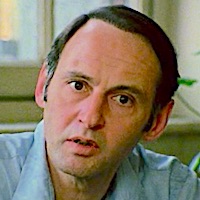
Comments (0)